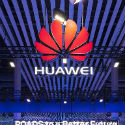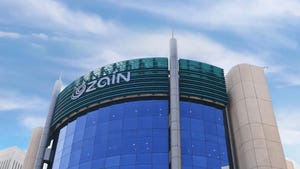
Huawei boss Ren Zhengfei says his offer to license the company's 5G technologies is aimed at a US supplier.
He said the proposal was intended as an exclusive arrangement with a company that had enough scale and expertise to be competitive.
Speaking at a company event in Shenzhen Thursday, Ren said he preferred it to be a US company because Europe, Japan and South Korea all had vendors with 5G capabilities.
He said Huawei was prepared to license patents and technology, including source code, hardware, manufacturing know-how and even chipset design if needed.
"We can set a new starting line for Japan, the EU and the US," he said.
The 74-year-old CEO and founder said he was not concerned that he would be creating a new competitor.
"First thing, we will earn revenue from licensing which can allow us to invest further in developing new products.
"When we nurture competition, it will turn into a driver for our workforce. If the competitor is strong enough to beat us I would be very happy to see that, because it would make the world a better one."
To date the US, which placed Huawei on an "entity list" in April, has not responded to Ren's offer.
Ren said despite the ban on US components Huawei would build 1.5 million 5G basestations in the first half of next year.
He says he expected the vendor would be able to supply carrier customers "without relying on the US."
Will Zhang, head of Huawei corporate strategy, told Light Reading the pace of the 5G buildout was well ahead of expectations.
"No country wants to fall behind, no operator wants to fall behind," he said.
Want to know more about 5G? Check out our dedicated 5G content channel here on
Light Reading.
Huawei, the world's biggest network equipment vendor, was "extremely confident" of being able to fulfill its orders.
He said the run-in period ahead of the ban ends this month. Huawei would build 5,000 basestations in October and massively ramp up production in 2020.
Zhang said it would be too expensive to lay up huge inventories during the run-in period, although the company has been building inventory ahead of a possible cut in supply for several years.
In contrast with optimism over network equipment, Ren was unable to give an assurance on a handset operating system to replace Android.
He said the company was working with Google but had not yet found an alternative if, as is expected, the ban on Android remains.
Ren said the company had not decided whether the Huawei-developed Harmony OS -- initially built for IoT purposes -- would be deployed on Huawei devices.
— Robert Clark, contributing editor, special to Light Reading
Read more about:
AsiaAbout the Author(s)
You May Also Like











